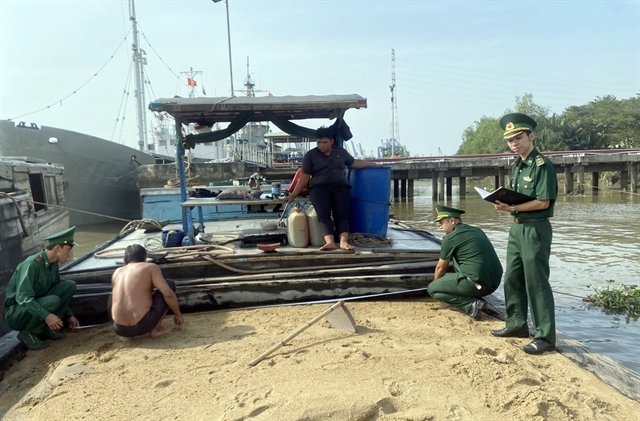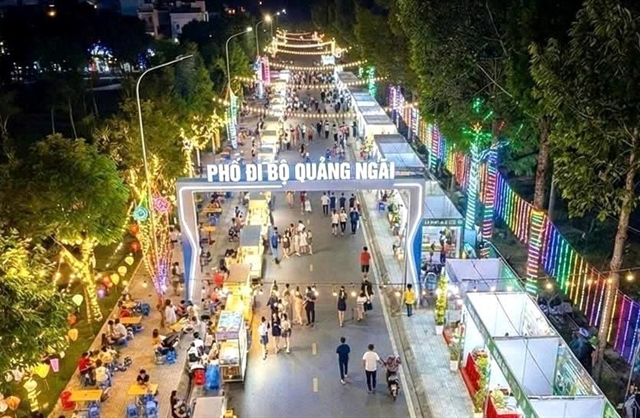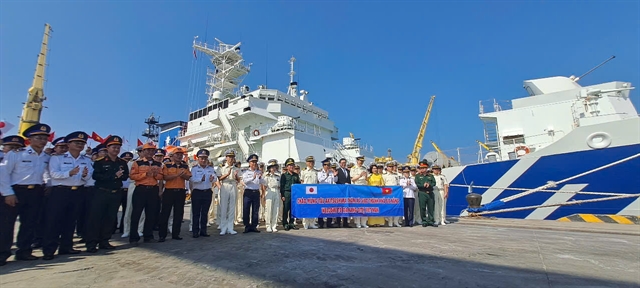 Society
Society

 |
| HCM City Border Guards seize two water vehicles transporting illegally mined sand on the Đồng Nai River. VNA/VNS Photo |
HÀ NỘI – The illegal mining of sand and gravel from riverbeds persists in several areas, causing significant loss of national mineral resources.
The illegal sand miners take advantage of border areas and the complex terrain to help evade the local authorities.
Illegal sand and gravel mining in riverbeds has been widespread in several provinces and cities nationwide, particularly in the Mekong Delta region.
One loophole contributing to this 'extraction of public property' is that the licensing and management of sand and gravel mining, primarily carried out by local authorities, has been largely subjective.
This is because riverbed sand and gravel are naturally formed, distributed according to natural laws and dependent on the flow rate, accumulation terrain and deposition rate.
Planning is only implemented within specific river segments under the jurisdiction of each locality.
Taking advantage of these shortcomings and the ease of sand and gravel extraction using the simplest technology, with big profits on offer and being easy to transport, many organisations and individuals have been aggressively depleting the nation's public assets.
In Tiền Giang province alone, within nine months of implementing the 'Project on Combating Illegal Mineral Resource Exploitation in Tiền Giang Province and its Border Areas with Neighbouring Provinces', 294 violations were detected, of which 55 involved illegal sand mining and 223 were related to transporting sand of unknown origin.
Bordering Tiền Giang, illegal sand mining in Vĩnh Long Province has also been a hot topic.
The Vĩnh Long authority stated that illegal sand mining in the province has recently become more sophisticated and harder to control.
Illegal mining activities primarily involve sand-pumping boats operating frequently at night or on holidays when enforcement agencies find it harder to monitor, inspect and intercept violations.
Meanwhile, a leader of Trà Vinh Province candidly admitted that illegal sand mining in the province has not yet been completely eliminated.
The causes include a rising demand for sand as a filling material due to recent construction needs, combined with the shortage of sand resources failing to meet demand and the large profits associated with sand extraction.
Furthermore, the legal framework for addressing violations in the mineral resource sector still has many inadequacies and lacks deterrence. Enforcement personnel are sparse, with insufficient equipment and vehicles.
As a result, violators often exploit border terrain to avoid detection and penalties from authorities.
Addressing this issue, the Ministry of Natural Resources and Environment (MoNRE) acknowledged that illegal mineral exploitation, particularly sand and gravel mining in riverbeds, has been a persistent topic of concern among voters, provincial delegates and National Assembly deputies.
Leaders take responsibility for violations
To prevent this situation, MoNRE has suggested that the People's committees of provinces and cities strictly implement coordination regulations for managing and addressing violations of mineral resource laws (especially sand and gravel) in interprovincial boundary areas.
They must decisively hold local leaders accountable if prolonged illegal sand mining activities occur, causing public concern.
Given this reality, the ministry has emphasised that provinces and cities must fulfil their responsibilities and duties under government decrees and directives on the management of riverbed sand and gravel and the protection of riverbeds, banks and beaches and administrative penalties in the fields of water resources and minerals.
Additionally, due to the specific nature of riverbed, reservoir and marine sand and gravel, with natural fluctuations in reserves and the environmental impacts of mining activities the Government has included specific provisions in the draft Geology and Mineral Resources Law.
This draft law, expected to be approved by the National Assembly in November, includes a separate chapter on the Management of Riverbed, Reservoir and Marine Sand and Gravel. VNS




